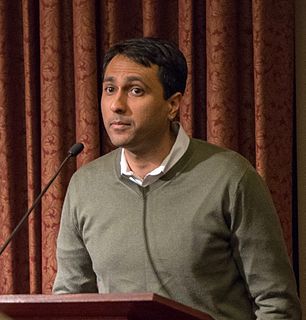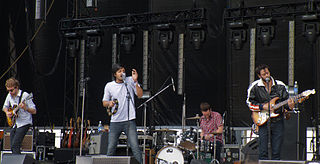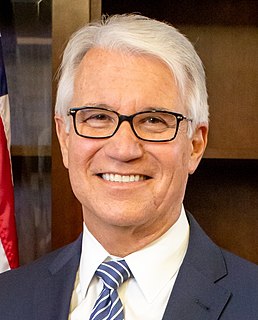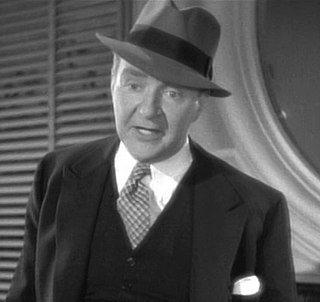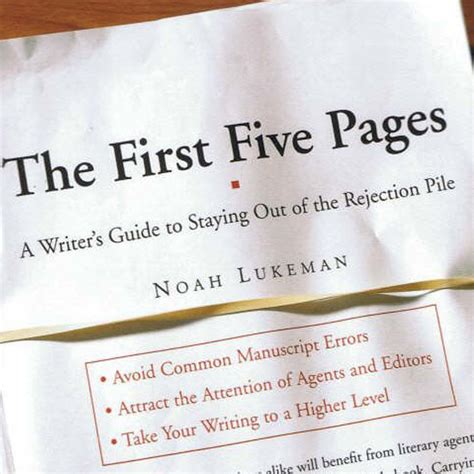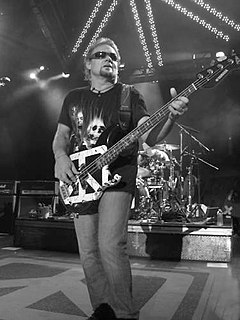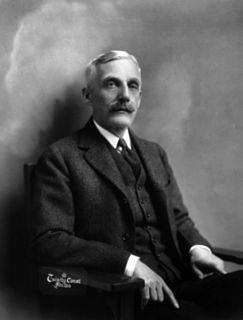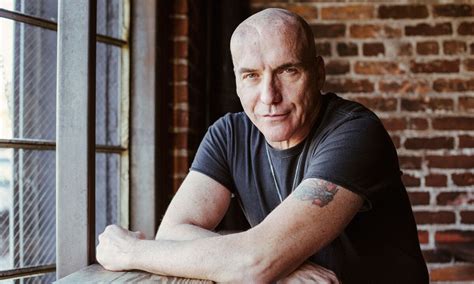Top 717 Inherently Quotes & Sayings - Page 12
Explore popular Inherently quotes.
Last updated on December 22, 2024.
[The Head of Radio Three] had been ensnared by the Music Director of the college and a Professor of Philosophy. These two were busy explaining to the harassed man that the phrase "too much Mozart" was, given any reasonable definition of those three words, an inherently self-contradictory expression, and that any sentence which contained such a phrase would be thereby rendered meaningless and could not, consequently, be advanced as part of an argument in favour of any given programme-scheduling strategy.
There's something inherently more appealing about the idea that you could reveal and tell stories about characters over the course of a TV season - 13 or 26 episodes, whatever it might be - than in the course of one two-hour movie. You can do so many more novelistic kinds of things on a TV show - with time, with gradual development of relationships, and so on - than you could possibly do in a movie. And that is very appealing.
It's really about taking something inherently negative, and starting with the word loser, starting with something that's negative, and changing it into something that's positive, redefining it, but doing it in a certain way, how - like I would say when I look out at the world and you see it's dark and it's just overbearing and every day is depressed, depressed, depressed. What it took was to change my perspective a little bit. Not to change the world, to change my perspective.
There is an insistent tendency among serious social scientists to think of any institution which features rhymed and singing commercials, intense and lachrymose voices urging highly improbable enjoyment, caricatures of the human esophagus in normal and impaired operation, and which hints implausibly at opportunities for antiseptic seduction as inherently trivial. This is a great mistake. The industrial system is profoundly dependent on commercial television and could not exist in its present form without it.
Too many people think that the faith line divides Muslims and Christians or Jews and Hindus, or just to say that there is this clash of civilizations and people from different religions are inevitably against each other, inherently opposed to each other. I don't believe that for a second. I think the faith line divides totalitarians and pluralists, which is to say that totalitarians from different religious backgrounds.
Growing up after the Second World War in a Jewish family, I really understand that, and have members of my family who are very committed to this concept. My grandfather's first name was Israel and he thought it was his country. In my own sense of this issue as an American Jew, I have been on both sides of this. At this point I think it is very important for there to be separation of religion and state. It's not good for Jews. It's not good for Muslims. It's not good for Christians. The marriage of state and religion is inherently problematic.
There is a difference between criticizing people and criticizing a people's uninformed ideals. That is, unless one defines himself or others by their ideals, then he is offended, and usually offended secretly. Because oddly enough, this person is the same person quickest to resort to dismissive name-calling, such as 'bigot' or 'zealot'. And oddly enough, he is always the one, the 'open-minded' one, who adamantly protests for, not only himself, but others not to listen to any type of scholarly theological truth inherently for the sake of his own personal, moral beliefs.
Screenwriting involves an often un-personal process. Co-writers, directors, producers, everyone has a say in what you put on a page, and stories are constantly changing according to budget, actors, and commercial needs. Films are a collaborative process and are also inherently narrative and structured, so you are always working within very tight parameters. Short fiction unleashes a more intimate voice and a passion for language. I believe short narratives can have the same amount of danger and drama as any action film.
I try and get on my yoga mat at least three times a week, and if I don't, things start to unravel. I admire routine and ritual, but I am not inherently good at keeping a schedule. I eat at different times every day, I wake up at different times, I change my mind about things I was so sure of the day before. Perhaps I am too passionate, too willing to bend the rules in the name of fun, or to pass the time, or who knows what? Being on stage is truly what puts it all into perspective, and after I get on stage, I take a moment to reflect, and I am set for another 24 hours.
Given my experience, I believe there are three compelling reasons why the death penalty should be replaced. (1) The criminal justice system makes mistakes and the possibility of executing innocent people is both inherently wrong and morally reprehensible; (2) My personal experience and crime data show the death penalty does not reduce crime; and (3) The death penalty wastes precious resources that could be best used to fight crime and solve thousands of unsolved homicides languishing in filing cabinets in understaffed police departments across the state.
First of all, women inherently, I think, are quite capable of having lots of balls in the air. And so, like, it's all those skills you use; you analyze the problem, figure out your tools, and then go at it piece by piece.... It's like what you have to do in the morning to get your kids out the door [if you're a parent]. The skills are, I believe, the same. The patience issues are the same.
Community is another such phenomenon. Like electricity, it is profoundly lawful. Yet there remains something about it that is inherently mysterious, miraculous, unfathomable. Thus there is no adequate one-sentence definition of genuine community. Community is something more than the sum of its parts, its individual members. What is this "something more?" Even to begin to answer that, we enter a realm that is not so much abstract as almost mystical. It is a realm where words are never fully suitable and language itself falls short.
Printed prose is historically a most peculiar, almost an aberrant way of telling stories, and by far the most inherently anesthetic: It is the only medium of art I can think of which appeals directly to none of our five senses. The oral and folk tradition in narrative made use of verse or live-voice dynamics, embellished by gesture and expression--a kind of rudimentary theater--as do the best raconteurs of all times. Commonly there was musical accompaniment as well: a kind of one-man theater-of-mixed-means.
You can say anything with a Post-It. I’m not entirely sure why that is. Maybe the friendliness of the squares makes it easier. A square is nicely compact and less intimidating than a full page. And they come in cheerful colors. Non-white paper is kind of inherently festive. Or maybe paper that sticks feels more important than paper that can blow away. (Though you can move them, if you need to put them somewhere else.) They might not be as lasting as words carved in stone, but Post-It thoughts will stay. For awhile, at least.
Any play that makes an audience think out of the box, that makes connections to life and names our pain and by doing so makes our pain subject to thinking and the process of understanding, is doing something inherently political. By promoting understanding, by putting experience in context, by making connections between the normal and the rational, theatre is an act of anti-terrorism. It stimulates courage and a survival spirit. In that sense of political, there are a lot of serious plays doing their work in the world.
So much of what we see and hear about the Middle East focuses on what we call politics, which is essentially ideology. But when it comes to the Middle East, and especially the Arab world, simply depicting people as human beings is the most political thing you can do. And that's why I chose to write about food: food is inherently political, but it's also an essential part of people's real lives. It's where the public and private spheres connect.
The equal protection standard of the constitution has one clear and central meaning - it absolutely prohibits invidious [repugnant] discrimination by government...Under our Constitution, any official action that treats a person differently on account of his race or ethnic origin is inherently [by nature] suspect and presumptively [probably] invalid...Under the Constitution we have, one practice in which government may never engage in the practice of racism - not even "temporarily" and not even as an "experiment."
I would always argue to my students that Canada is not necessarily or inherently a left-wing country, and the United States is not necessarily the citadel of right-wing liberty. The obvious case there is Franklin Roosevelt's New Deal, which made the Americans much further left than the Canadians at the time, and Americans coming to Canada found us backward, conservative, and out of tune with the kind of free-spirited liberalism that there was in the States. Then things reversed, with medicare the prime example.
America need a significantly changed taxation system. And the one that I've advocated is based on tithing, because I think God is a pretty fair guy. If you give me a tithe, it doesn't matter how much you make. If you've had a bumper crop, you don't owe me triple tithes. And if you've had no crops at all, you don't owe me no tithes. So there must be something inherently fair about it.
Ambitions for self may be quite modest. . . . Ambitions for God, however, if they are to be worthy, can never be modest. There is something inherently inappropriate about cherishing small ambitions for God. How can we ever be content that he should acquire just a little more honour in the world? No. Once we are clear that God is King, then we long to see him crowned with glory and honour, and accorded his true place, which is the supreme place. We become ambitious for the spread of his kingdom and righteousness everywhere.
Fascism is the most inherently evil political ideology that man has ever devised. Wherever we see even the smallest sapling of fascism growing, we should use every just, reasonable and humane method at our disposal to rip-it out by its roots and then salt the very earth wherein it grew, so that no other such thing may ever again take root. Of course, we must also take great care to ensure that during this process, we ourselves do not become fascists in the fight against fascism.
To reverse the effects of civilization would destroy the dreams of a lot of people. There's no way around it. We can talk all we want about sustainability, but there's a sense in which it doesn't matter that these people's dreams are based on, embedded in, intertwined with, and formed by an inherently destructive economic and social system. Their dreams are still their dreams. What right do I -- or does anyone else -- have to destroy them. At the same time, what right do they have to destroy the world?
White supremacist ideology is based first and foremost on the degradation of black bodies in order to control them. One of the best ways to instill fear in people is to terrorize them. Yet this fear is best sustained by convincing them that their bodies are ugly, their intellect is inherently underdeveloped, their culture is less civilized, and their future warrants less concern than that of other peoples.
There is no substitute under the heavens for productive labor. It is the process by which dreams become realities. It is the process by which idle visions become dynamic achievements. Most of us are inherently lazy. We would rather play than work. We would rather loaf than work...But it is work that spells the difference in the life of a man or woman. It is stretching our minds and utilizing the skills of our hands that lift us from mediocrity.
Most organizations only focus on WHAT they do and HOW they do it - tactics and strategies - and they aren't even aware that this thing called the WHY exists. Focusing on only two pieces of a three piece puzzle leaves an organization, or a career, inherently out of balance. Being out of balance, only operating on two of the three pieces, shows up in different ways - increased stress, loss of passion, obsession with what your competition is doing, being forced to play the price game, trouble differentiating. These are all signs that the WHY is missing.
If God existed (a question concerning which Jubal maintained a meticulous intellectual neutrality) and if He desired to be worshiped (a proposition which Jubal found inherently improbable but conceivably possible in the dim light of his own ignorance), then (stipulating affirmatively both the above) it nevertheless seemed wildly unlikely to Jubal to the point of reductio ad absurdum that a God potent to shape galaxies would be titillated and swayed by the whoop-te-do nonsense the Fosterites offered Him as "worship.
Language is inherently not concerned with logic. As an expression of the psychological activities of humankind, it simply follows a linear process as it seeks actualisation. Moreover, it does not obey the objective concepts of time and space that belong to the physical world. When the discussion of time and space is imported into linguistic art from scientific aims and research methods, that linguistic art is entirely reduced to trifling pseudo-philosophical issues.
And uh, so, I'm running for a reason. I'm answering this question here and the answer is, you cannot lead America to a positive tomorrow with revenge on one's mind. Revenge is so incredibly negative. And so to answer your question, I'm going to win because people sense my heart, know my sense of optimism and know where I want to lead the country. And I tease people by saying, "A leader, you can't say, follow me the world is going to be worse." I'm an optimistic person. I'm an inherently content person.
Never have I enjoyed youth so thoroughly as I have in my old age. In writing Dialogues in Limbo, The Last Puritan, and now all these descriptions of the friends of my youth and the young friends of my middle age, I have drunk the pleasure of life more pure, more joyful than it ever was when mingled with all the hidden anxieties and little annoyances of actual living. Nothing is inherently and invincibly young except spirit. And spirit can enter a human being perhaps better in the quiet of old age and dwell there more undisturbed than in the turmoil of adventure.
Other anatomical changes associated with long-duration space flight are definitely negative: the immune system weakens, the heart shrinks because it doesn't have to strain against gravity, eyesight tends to degrade, sometimes markedly (no one's exactly sure why yet). The spine lengthens as the little sacs of fluid between the vertebrae expand, and bone mass decreases as the body sheds calcium. Without gravity, we don't need muscle and bone mass to support our own weight, which is what makes life in space so much fun but also so inherently bad for the human body, long-term.
It had also been my belief since I started writing fiction that science fiction is never really about the future. When science fiction is old, you can only read it as being pretty much about the moment in which it was written. But it seemed to me that the toolkit that science fiction had given me when I started working had become the toolkit of a kind of literary naturalism that could be applied to an inherently incredible present.
The real transgression occurs when religion wants government to tell citizens how to live uniquely personal parts of their lives. The failure of Prohibition proves the futility of such an attempt when a majority or even a substantial minority happens to disagree. Some questions may be inherently individual ones, or people may be sharply divided about whether they are. In such cases, like Prohibition and abortion, the proper role of religion is to appeal to the conscience of the individual, not the coercive power of the state.
Rivers are inherently interesting. They mold landscapes, create fertile deltas, provide trade routes, a source for food and water; a place to wash and play; civilizations emerged next to rivers in China, India, Europe, Africa and the Middle East. They sustain life and bring death and destruction. They are ferocious at times; gentle at times. They are placid and mean. They trigger conflict and delineate boundaries. Rivers are the stuff of metaphor and fable, painting and poetry. Rivers unite and divide - a thread that runs from source to exhausted release.
We speak erroneously of "artificial" materials, "synthetics", and so forth. The basis for this erroneous terminology is the notion that Nature has made certain things which we call natural, and everything else is "man-made", ergo artificial. But what one learns in chemistry is that Nature wrote all the rules of structuring; man does not invent chemical structuring rules; he only discovers the rules. All the chemist can do is find out what Nature permits, and any substances that are thus developed or discovered are inherently natural. It is very important to remember that.
In order to even begin to learn how to play his instrument, it takes the guitarist weeks to build calluses on his fingertips; it takes the saxophonist months to strengthen his lip so that he might play his instrument for only a five-minute stretch; it can take the pianist years to develop dual hand and multiple finger coordination. Why do writers assume they can just “write” with no training whatsoever-and then expect, on their first attempt, to be published internationally? What makes them think they're so much inherently greater, need so much less training than any other artists?
The original sin is not that we are inherently flawed, born sinners, or imperfect; the original sin is that we do not recognize, realize that each of us is born perfect, exactly as the universe, God intended us to be. We are all perfect. The universe is perfect. Stop struggling against yourself. Accept that you are perfect. When you do, your highest self will shine through.
I think that the spirit of America is still very much one of where people want to work hard and the majority of people want to work hard. They want to be entrepreneurs. But when you have that all taken away with government regulation or with government overbearance of taxation, you start to wonder whether if it's even worthwhile because who are you really working for? Are you working for yourself, are you working for the government? In the end, this wealth distribution scheme that's at the heart of the current political administration is an inherently wrong one.
Sweet, sane, still Nakedness in Nature! — ah if poor, sick, prurient humanity in cities might really know you once more! Is not nakedness then indecent? No, not inherently. It is your thought, your sophistication, your fear, your respectability that is indecent. There come moods when these clothes of ours are not only too irksome to wear, but are themselves indecent. Perhaps indeed he or she to whom the free exhilarating ecstasy of nakedness in Nature has never been eligible (and how many thousands there are!) has not really known what purity is — nor what faith or art or health really is.
The history of taxation shows that taxes which are inherently excessive are not paid. The high rates inevitably put pressure upon the taxpayer to withdraw his capital from productive business and invest it in tax-exempt securities or to find other lawful methods of avoiding the realization of taxable income. The result is that the sources of taxation are drying up; wealth is failing to carry its share of the tax burden; and capital is being diverted into channels which yield neither revenue to the Government nor profit to the people.
One of the great things about a free market is that it's inherently and indefatigably Darwinistic. Left to its own devices, a free market will eventually weed out the stupid from both 'ends' of the food chain otherwise described as supply and demand. As money is liberated from the hands of the stupid, those who would sell products or services to the stupid will eventually lose their share of the marketplace. Devoid of any 'benevolent' interference from government, the process is gloriously relentless, and cannot help but yield a successively smarter class of participants.
I have traveled to a lot of places, and you look at another young person who lives under very different circumstances than you but has the same dreams or the same interests or might be better at what I do than what I do. But I was born in a different place, and she was born in a different place. Just for that alone, you're kind of inherently given opportunity. That's something that I'm very grateful for, but I'm also very aware of.
Complexity has and will maintain a strong fascination for many people. It is true that we live in a complex world and strive to solve inherently complex problems, which often do require complex mechanisms. However, this should not diminish our desire for elegant solutions, which convince by their clarity and effectiveness. Simple, elegant solutions are more effective, but they are harder to find than complex ones, and they require more time, which we too often believe to be unaffordable
There were people whom I considered friends or loved ones who either abandoned me or betrayed me in ways I'd never have suspected. But there were others who had been barely acquaintances of mine whose loyalty and efforts on my behalf made me realize that not everyone was as inherently rotten as I'd previously believed. So it caused a violent split in my view of humanity - people turned out to be far worse and far better than I'd ever dreamed possible.
In a swamp, as in meditation, you begin to glimpse how elusive, how inherently insubstantial, how fleeting our thoughts are, our identities. There is magic in this moist world, in how the mind lets go, slips into sleepy water, circles and nuzzles the banks of palmetto and wild iris, how it seeps across dreams, smears them into the upright world, rots the wood of treasure chests, welcomes the body home.
The very word "secrecy" is repugnant in a free and open society; and we are as a people inherently and historically opposed to secret societies, to secret oaths and to secret proceedings. We decided long ago that the dangers of excessive and unwarranted concealment of pertinent facts far outweighed the dangers which are cited to justify it. Even today, there is little value in opposing the threat of a closed society by imitating its arbitrary restrictions. Even today, there is little value in insuring the survival of our nation if our traditions do not survive with it.
The argument from design is ultimately an appeal to miraculous causes, i.e., causes that do not, and cannot, occur in the natural course of events. This is why an explanation via design is not a legitimate alternative to scientific and other naturalistic modes of explanation. To refer to a miraculous cause is to refer to something that is inherently unknowable, and this sanctuary of ignorance explains nothing at all. However much it may soothe the imagination of the ignorant, it does nothing to satisfy the understanding of a rational person.
I was working on a satirical novel about a charismatic preacher who takes over a small Indiana town. Then I remembered Jim Jones was from Indiana and Googled him. I learned that the FBI had recently released all the documents that agents collected from Jonestown after the massacre - over 50,000 pieces of paper and almost 1,000 audio tapes. I started reading the files and couldn't tear myself away; I find "true" stories inherently more powerful than fiction.
Over time, I started becoming more aware of the vastness and complexity of the universe, which led me away from any sort of conventional Christianity. I still love the teachings of Christ, but I also believe that the human condition prevents us from having any true objective knowledge of the universe. All human belief systems are inherently flawed. If I had to label myself now, I'd call myself a Taoist-Christian-agnostic quantum mechanic. Also, there's nothing in the actual Bible that limits a Christian in their interest in science. Anti-science is a function of ignorant fundamentalism.
I do worry that beginning cartoonists could feel somewhat strangled by the increasing critical seriousness comics has received of late and feel, like younger writers, that they have to have something to "say" before they set pen to paper. Many cartoonists feel even more passionate about this idea than I do, vehemently insisting that comics are inherently "non-art" and poop humor or whatever it is they think it is, but that attitude is a little like insisting that all modern writing should always take the form of The Canterbury Tales.
One, which I mention several times elsewhere, is the need for patience if big profits are to be made from investment. Put another way, it is often easier to tell what will happen to the price of a stock than how much time will elapse before it happens. The other is the inherently deceptive nature of the stock market. Doing what everybody else is doing at the moment, and therefore what you have an almost irresistible urge to do, is often the wrong thing to do at all.
Photography is inherently an analytic discipline. Where a painter starts with a blank canvas and builds a picture, a photographer starts with the messiness of the world and selects a picture. A photographer standing before houses and streets and people and trees and artifacts of a culture imposes an order on the scene - simplifies the jumble by giving it structure. He or she imposes this order by choosing a vantage point, choosing a frame, choosing a moment of exposure, and by selecting a plane of focus.
Why would a lazy guy become a parent of five? Then again, why would creative people who inherently don't like change and criticism become writers, actors, or comedians? There's something about this process. I joke about it: My kids have made me a better person, and I only need, like, 34 more of them to be a really good guy.
I wonder why anyone would hesitate to be generous with their writing. I mean, if you really want to make a living, go to Wall Street and trade oil futures ... We're writers. We're doing something that is inherently a generous act. We're exposing ourselves to the muse and to the things that frighten us. Why do that if you're not willing to be generous? And paradoxically, almost ironically, it turns out that the more generous you are, the more money you make. But that's secondary. For me, the privilege of being generous is why I get to do this.
[ Christianity], in and of itself, sets itself apart inherently, and so, for somebody to say, Well it just seems to me like you can pick between all these religions and still have the same thing. Its kind of like somebody saying, You could pick between 80 bananas and one apple and say you have a banana. You cant call that apple a banana.




